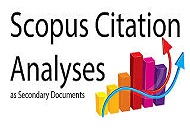Pengembangan Buku Ajar Matematika Dasar Untuk Meningkatkan Kemampuan Pemecahan Masalah Matematika
DOI:
https://doi.org/10.33394/jk.v6i1.2331Keywords:
Textbook, Mathematical Problem SolvingAbstract
This research aims to determine the process and results of the development of material-based solutions to improve the mathematical problem-solving skills of elementary school teacher Education Program, Citra Bangsa University. This research is development research with the model ADDIE (Analysis, Design, Development, Implementation, and Evaluation). The subject in this study was 2 expert validators and a limited trial subject of second-semester students, elementary school teacher Education, Citra Bangsa University. The study was conducted in the odd semester of 2018/2019. The instrument used is a validity test questionnaire and practicality test. The data analysis techniques used are quantitative and quantifiable descriptive analyses. The results of the development of this resolution-based teaching book are the results of the percentage of basic mathematics teaching book 84% including valid categories, the results of the percentage of test book design validation of 92.5% including a very valid category. Practicality test results showed 88.56% inclusive of very practical category and reliability test result of 0.725 including reliability category.
References
Aji, S.D., Hudha, M.N., Rismawati, A.Y. (2017). “Pengembangan modul pembelajaran fisika berbasis pemecahan masalah untuk meningkatkan kemampuan pemecahan masalah fisikaâ€. Science Education Journal. 1(1).36-51. http://ojs.umsida.ac.id/index.php/sej/article/view/830
Arikunto, S. (2006). Metode Penelitian: Prosedur Penelitian Suatu Pendekatan Praktik. Jakarta : Rineka Cipta.
Citroresmi, N., Sugiatno, Suratman, D. (2016). Pengembangan Modul Matematika Berbasis Masalah Untuk Meningkatkan Kemampuan Penyelesaian Masalah dan Berpikir Kreatif Matematis Siswa. Jurnal Pendidikan dan Pembelajaran Khatuliswa. 5 (4). http://jurnal.untan.ac.id/index.php/jpdpb/article/view/14866/13091
Christiyoda, S., Widoretno, S., Katyanto, P. (2016). Pengembangan Modul Berbasis Pemecahan Masalah Pada Materi Sistem Eksresi Untuk Meningkatkan Kemampuan Berpikir Kritis Siswa. Jurnal Inkuiri. 5 (1), 74 – 84. http://www.jurnal.fkip.uns.ac.id/index.php/inkuiri/article/view/9239/6837
Departemen Pendidikan Nasional. (2008). Pengembangan Bahan Ajar dan Media. Jakarta : Departemen Pendidikan Nasional.
Hartono, W., Noto, M.S., (2017). Pengembangan Modul Berbasis Penemuan Terbimbing untuk Meningkatkan Kemampuan Matematis Pada Perkuliahan Kalkulus Integral. Jurnal Nasional Pendidikan Matematika. 1 (2), 320 – 333. http://jurnal.unswagati.ac.id/index.php/JNPM/article/view/616/450
Hidayat, A., Irawan, I. (2017). Pengembangan LKS Berbasis RME dengan Pendekatan Problem Solving Untuk Memfasilitasi Kemampuan Pemecahan Masalah Matematis Siswa. Jurnal Cendekia: Jurnal Pendidikan Matematika. 1 (2). 51 – 63. https://j-cup.org/index.php/cendekia/article/view/20
Kharisma, J.Y., Budiman. (2017). Pengembangan Bahan Ajar Matematika Berbasis Masalah Berorientasi Kemampuan Pemecahan Masalah dan Prestasi Belajar Matematika. 4(2). 142 – 151. https://journal.uny.ac.id/index.php/jpms/article/view/16690
Lathiifah, I,S.,Zulkardi, Somakim. (2015). Pengembangan Bahan Ajar Materi Aturan Pencacahan Menggunakan Pembelajaran Berbasis Masalah di SMA. Jurnal Didaktik Matematika. 2 (2), 72 – 83. http://www.jurnal.unsyiah.ac.id/DM/article/view/2817/2689
Muslaini, F.,Kristina, D.,Ngadiso, N. (2018). A Call for Barriers in Implementation of Education Regulation: the Latest English Textbook as Main Instructional Media in Schools in Indonesia. International Journal of Multicultural and Multireligious Understanding. 5 (4), 38-44. https://www.researchgate.net/publication/326004546_A_Call_for_Barriers_in_Implementation_of_Education_Regulation_The_Latest_English_Textbook_as_Main_Instructional_Media_in_Schools_in_Indonesia/link/5b32e8a24585150d23d59342/download
Nasution, A. (2016). Pengembangan Modul Matematika Berbasis Masalah untuk Meningkatkan Kemampuan Pemecahan Masalah Matematis Siswa. Recognisi: Jurnal Pendidikan dan Kependidikan. 1 (1). 47 – 63. https://osf.io/preprints/inarxiv/ftyu6/
NTCM. (2000). Principles and Standards for School Mathematics. United States of America : The National Council of Teachers Mathematics, Inc.
Pistanty, M.A., Sunarno, W., Maridi., (2015). Pengembangan Modul IPA Berbasis Problem Based Learning Untuk Meningkatkan Kemampuan Pemecahan Masalah Pada Materi Polusi Serta Dampaknya Pada Manusia dan Lingkungan Siswa Kelas XI SMK Pancasila Purwodadi. Jurnal Inkuiri. 4 (2), 68 – 75. http://www.jurnal.fkip.uns.ac.id/index.php/inkuiri/article/view/7752/5567
Pratiwi, R.A., Djatmika, E.T.,Sulton. (2018). Buku Ajar Tematik Berbentuk Cerita Anak dengan Permainan Teka-teki Silang. Jurnal Pendidikan: Teori, Penelitian dan Pengembangan. 3(11). 1483 – 1487. http://journal.um.ac.id/index.php/jptpp/article/view/11773
Suarsana, I.M., Mahayukti, G.A., (2013). Pengembangan E-Modul Berorientasi Pemecahan Masalah Untuk Meningkatkan Keterampilan Berpikir Kritis Siswa. Jurnal Pendidikan Indonesia. 2 (2), 264 – 275. https://ejournal.undiksha.ac.id/index.php/JPI/article/view/2171/1887
Wahyuningsih, B. Y. (2018). Pemecahan Masalah Matematika Melalui Metakognisi Dalam Konteks Sosial. Jurnal Kependidikan: Jurnal Hasil Penelitian dan Kajian Kepustakaan di Bidang Pendidikan, Pengajaran dan Pembelajaran, 4(1), 9-15. http://ojs.ikipmataram.ac.id/index.php/jurnalkependidikan/article/view/896/786
Downloads
Published
How to Cite
Issue
Section
Citation Check
License
License and Publishing AgreementIn submitting the manuscript to the journal, the authors certify that:
- They are authorized by their co-authors to enter into these arrangements.
- The work described has not been formally published before, except in the form of an abstract or as part of a published lecture, review, thesis, or overlay journal.
- That it is not under consideration for publication elsewhere,
- That its publication has been approved by all the author(s) and by the responsible authorities – tacitly or explicitly – of the institutes where the work has been carried out.
- They secure the right to reproduce any material that has already been published or copyrighted elsewhere.
- They agree to the following license and publishing agreement.
Authors who publish with JK agree to the following terms:
- Authors retain copyright and grant the journal right of first publication with the work simultaneously licensed under a Creative Commons Attribution License (CC BY-SA 4.0) that allows others to share the work with an acknowledgment of the work's authorship and initial publication in this journal.Â
- Authors are able to enter into separate, additional contractual arrangements for the non-exclusive distribution of the journal's published version of the work (e.g., post it to an institutional repository or publish it in a book), with an acknowledgment of its initial publication in this journal.
- Authors are permitted and encouraged to post their work online (e.g., in institutional repositories or on their website) prior to and during the submission process, as it can lead to productive exchanges, as well as earlier and greater citation of published work.
- Open Data Commons Attribution License, http://www.opendatacommons.org/licenses/by/1.0/ (default)

This work is licensed under a Creative Commons Attribution-ShareAlike 4.0 International License.








